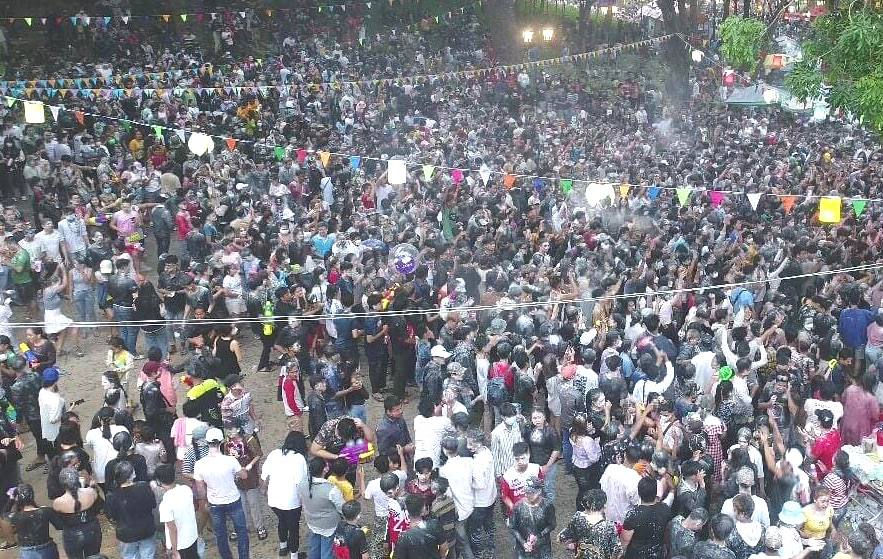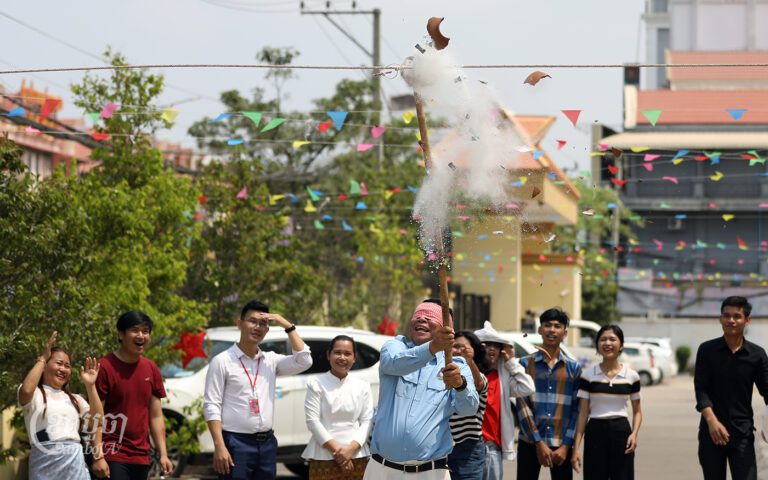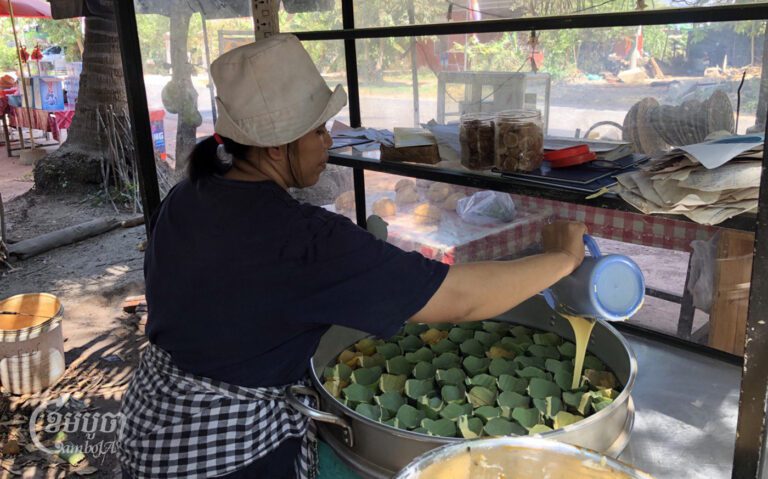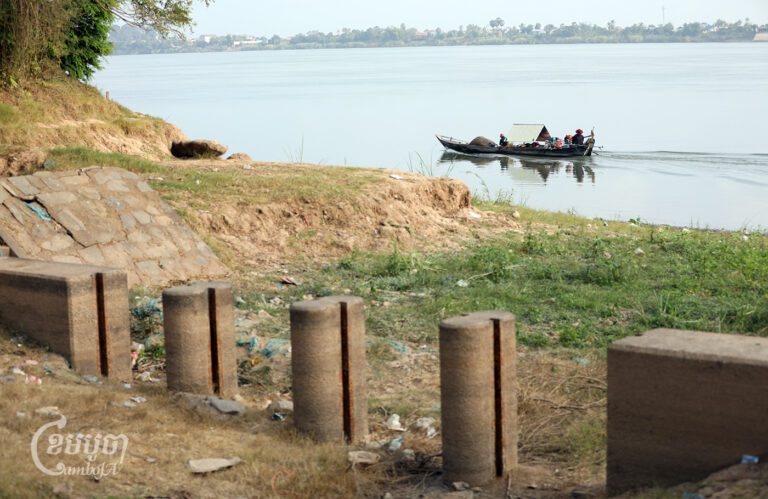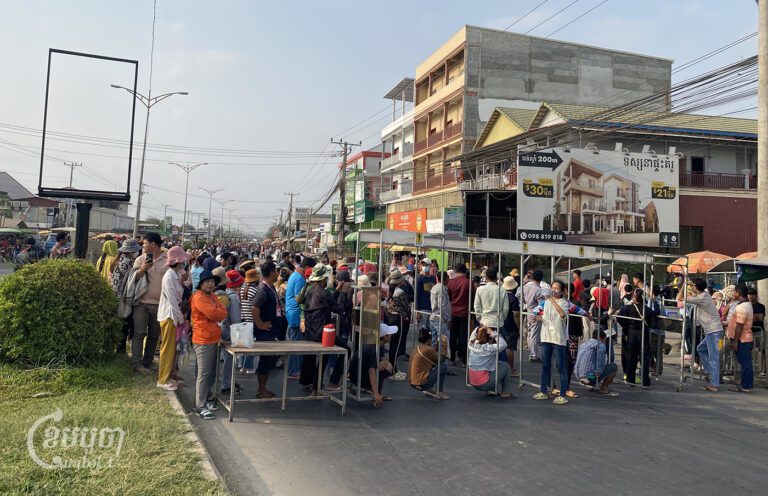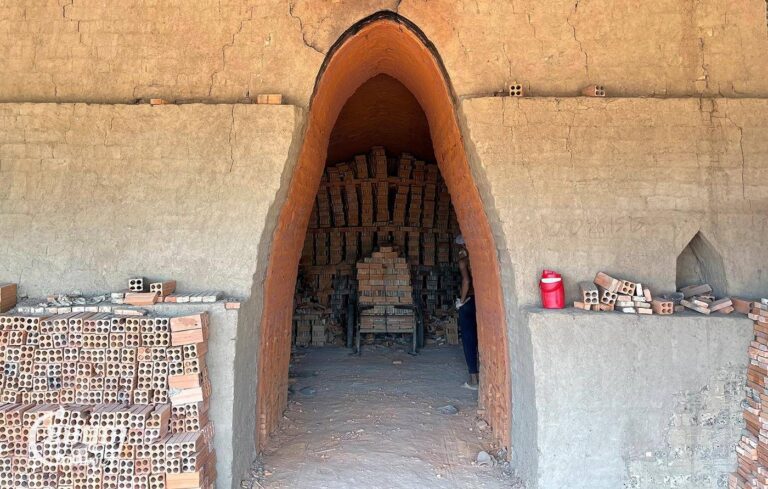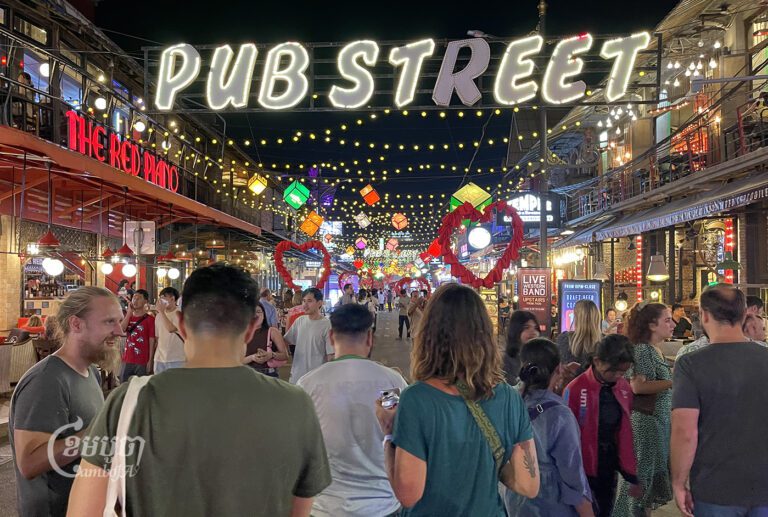As more than five million domestic visitors traveled around Cambodia to celebrate the Khmer New Year holiday, some officials are sounding their concern for a renewed COVID-19 outbreak.
Their unease comes as thousands of people gathered mostly without facemasks and social distancing measures, in virtually all provinces nationwide to celebrate through the holiday weekend, which began April 14. The gatherings, many of which were organized by provincial authorities, allowed people to dance, spray water and powder at each other in scenes of mass revelry.
Those celebrating seemed especially enthusiastic this year, as Cambodia held off celebrating Khmer New Year for two years since the viral pandemic began in 2020.
Kampong Speu provincial governor Vei Samnang said that while most people received full doses of COVID-19 vaccine, holiday gatherings still raised concerns of increased infection rates.
“Even though we believe in the vaccine, we are still worried and think that there will be a higher risk of COVID-19 infections,” he said.
However, Samnang added that he believed such a breakout would not cause serious problems for disease control.
“If the virus spreads, I don’t think it will be a major problem because everyone has had the vaccine, which relieves us when we catch the virus. It does not make us seriously sick or die,” he said.
Authorities are still observing the situation, Samnang said.
“We have asked all levels of authorities from villages to the provincial government to closely monitor cases,” he said. “For the past two days, there have been no reports of COVID-19 cases in the province.”
This may only be a delayed effect, especially given the incubation period of the virus before signs of infection. Samnang said he’d observed that most people did not wear masks properly and did not respect the government’s health measures through the holiday.
Kampong Speu reported more than 340,000 local people traveling in the province for the long weekend.
Other provinces also marked substantial travel numbers but have yet to see an increase in COVID-19 infection rates.
Kandal provincial governor Kong Sophorn said the official three-day holiday came with no sign of new local COVID-19 cases.
“They already have three to four vaccinations, so they have enough immunization,” he said. “Full vaccination and the people’s understanding of COVID-19 are the key points to measure the situation.”
He said from villages to district networks, authorities are still watching to ensure infections will be reported timely.
“When people get sick, they will go to hospital because rural people have no ability to have their own treatment at home,” he said.
Kep provincial governor Som Piseth also expressed concern about the potential renewal of COVID-19 cases, but said the situation wouldn’t be more clear until next week.
“Overall, we can observe that they removed their face masks when they were playing and dancing. On the occasion of the Khmer New Year, this is how the people have fun,” he said.
According to the Health Ministry, case numbers of COVID-19 continue to fall even after the holiday. Data from the ministry only reflects 16 new cases of omicron variant infection reported on Sunday and Monday, with no new deaths related to the virus.
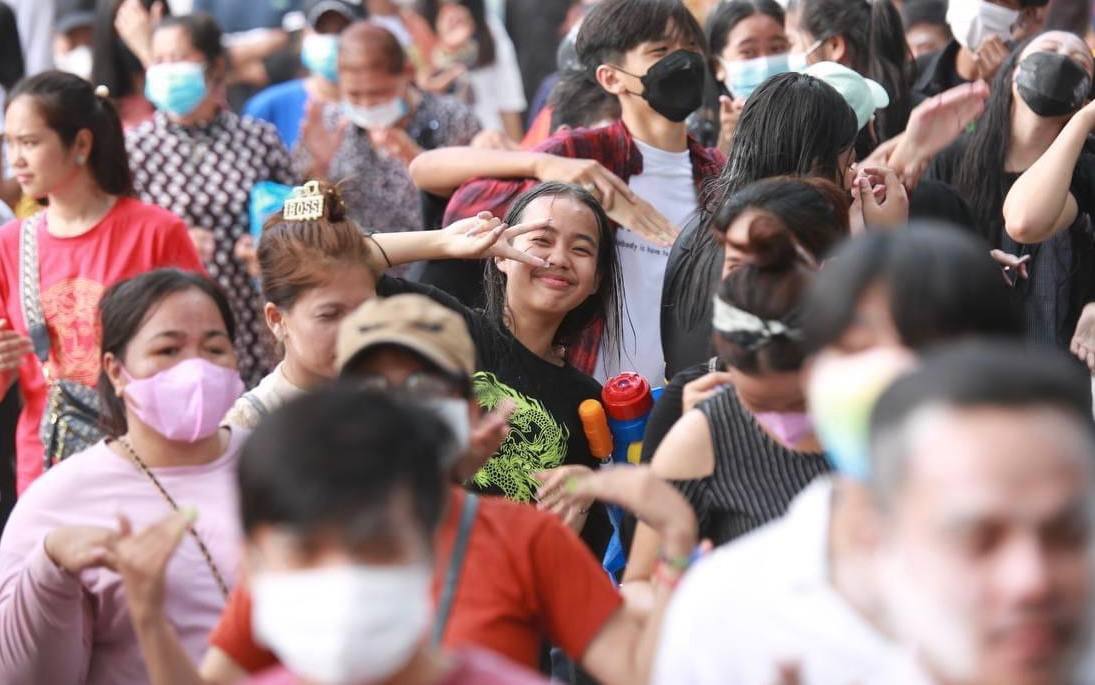
Ministry spokeswoman Or Vandine could not be reached for comment on Monday.
Prime Minister Hun Sen on April 15 urged the public to continue implementing government measures to prevent the spread of COVID-19, including social distancing and masking.
“All places must pay attention to contain COVID-19 in all forms as the government uses all possible means to help the people to protect themselves from the pandemic,” he said. “We hope there will be no community outbreak after Khmer New Year, which is my main concern.”
Hun Sen said during the holiday people did not wear facemasks while the number of people who went to get vaccinated during this period was small.
Dr Li Ailan, the WHO representative to Cambodia, said that there are no “zero risk” events or activities, and that risk of infection will increase with mass gatherings where it is not possible to maintain physical distance.
“The COVID-19 pandemic is still with us, and Omicron is still circulating in our community,” she said.
She said vaccination against COVID-19 remains critically important and that it is likely that infections will increase after the mass celebrations of the holiday weekend.
“We need close monitoring to detect invisible transmission with a good surveillance system in place,” Ailan said. “We must be prepared for a potential surge in cases, and plan for their management both at home and in hospitals.”
As of April 17, according to the Health Ministry, a total of more than 14.85 million Cambodian people were vaccinated against COVID-19, a number that equals about 92.8 percent of the total population of 16 million.
During the Khmer New Year holiday, authorities also installed health care workers along entertainment places and tourism sites to provide vaccines to people in place.
The Cambodian government has lifted all COVID-19 travel restrictions in the hopes of boosting the hard-hit tourism industry.
Last month, the Health Ministry announced that travelers entering Cambodia were not required to have a PCR test prior to arrival as long as they had a vaccination certificate.
San Chey, executive director at the Affiliated Network for Social Accountability (ANSA), said authorities should promote Khmer traditional games rather than allowing people to spray water and powder at each other. Such games would still likely present some COVID-19 risk, given their reliance on physical proximity with others.
“It contrasts with the existing health measure put by the government, and we are concerned about the large-scale transmission after Khmer New Year,” he said of mass gatherings. “We want to see the Ministry of Health take more action to encourage people to monitor their health to ensure that the epidemic remains under control.”


